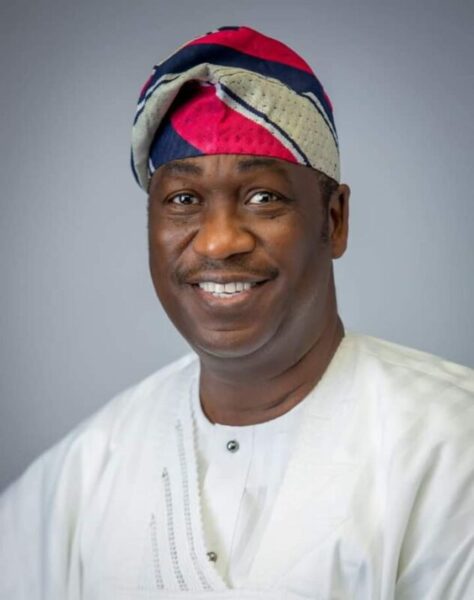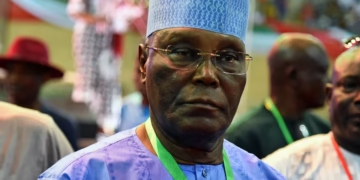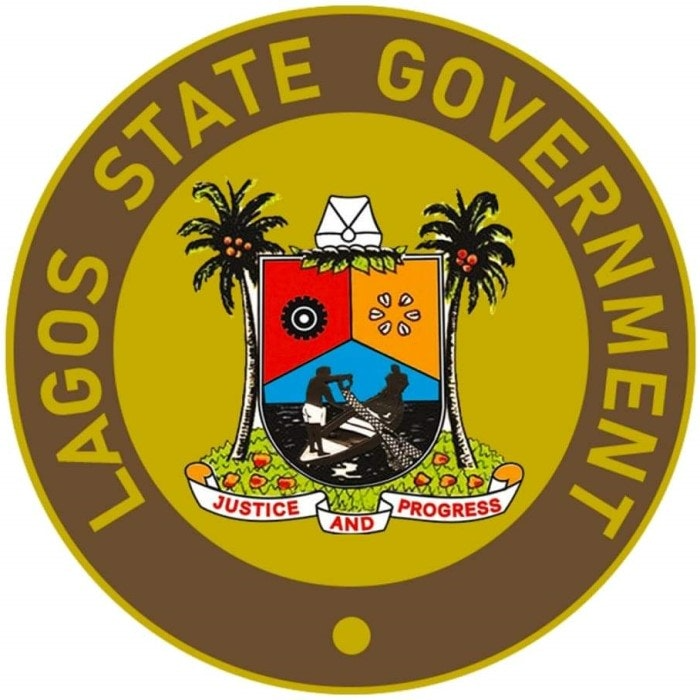Thirty-two years after the annulled 1993 election, Nigerians reflect on June 12, mourning unfulfilled democratic ideals and debating the state of current governance
[dropcap]J[/dropcap]une 12 Anniversary marks a significant day of reflection for Nigerians, 32 years after the annulment of the 1993 presidential election, a poll widely regarded as the nation’s freest and fairest.
Also read: Saraki admits PDP turmoil, vows opposition will regroup after Tinubu’s Democracy Day swipe
The signature tune of the late Chief Moshood Kashimawo Olawale Abiola, “On the march again!”, resonated nationwide, with supporters echoing “MKO na our man.”
Abiola, the Social Democratic Party (SDP) presidential standard bearer, won that historic election, a victory that ultimately became a stillbirth.
What should have been a beautiful culmination of a long military to civil rule transition transformed into a bitter experience for Nigerians.
Next to football, no other event holds such endearment for Nigerians as democracy, specifically elections, which empower citizens to choose and hold their leaders accountable.
After a prolonged military interregnum from 1966 to 1999, with a brief civilian interlude in 1979 to 1983 (the Second Republic), Nigerians deeply craved a return to civil rule.
Not even the “diarchy,” a mix of civil and military rule experimented with by General Ibrahim Badamosi Babangida between 1991 and 1992, could quell the citizens’ quest for full democracy.
It was against this backdrop of great expectation, and the perceived insincere approach to the planned return of democracy, that Nigerians massively participated on June 12, 1993, to choose their preferred president.
However, the people’s will was not respected. Instead, military adventurers imposed a quasi democracy, featuring an appointed civilian head of government augmented by a mix of military and civilian federal cabinet members.
By supplanting Chief M.K.O. Abiola, the popular choice, with handpicked Ernest Shonekan, the military failed to recognise that popular ballot cannot be substituted with imposed leadership.
Ever since that attempt to tread on the expressed will of Nigerians, the spectre of June 12 has continued to haunt the polity. Agitations for the revalidation of Abiola’s election became a national anthem.
Subsequent attempts to appease the citizenry, including promises of a fresh election and political cum constitutional conferences, failed to quell the animosity that hindered peace and orderly governance.
The return to full fledged military rule in November 1993, through the sacking of the Shonekan led Government of National Unity, sparked further public discontent.
This period tragically consumed the lives of both the acclaimed winner of the 1993 presidential poll, Chief Abiola, and the head of the putschists who overthrew the GNU, General Sani Abacha.
In 1999, the democracy that the people desired finally dawned on the country. Yet, the murmurs against the suppression of the popular will of June 12 persisted, leading to incremental efforts at pacification.
First, Abiola was posthumously conferred with the honour of Grand Commander of the Order of the Federal Republic (GCFR), a veiled recognition of his aborted presidency.
Then, June 12, instead of May 29, was proclaimed by then President Muhammadu Buhari as Nigeria’s Democracy Day. That wind of recognition, which came 25 years after the annulled election, signalled that those who “murdered democracy, murdered sleep, and could therefore not sleep.”
Today, 32 years later, June 12 has attained the full stature of a national holiday, serving as a day to remember and reflect on Nigeria’s tortuous journey to enthrone a government of the people, by the people, and for the people.
Amidst the complex political vicissitudes Nigeria has weathered, stakeholders continue to express divergent views about the importance of June 12 vis-à-vis the country’s democracy.
Many stress that much still needs to be done to achieve the ideals and realistic expectations of popular governance.
In the South West region, a stronghold for agitation for good and responsible governance, Femi Okurounmu, a member of the National Democratic Coalition (NADECO) and former representative of Ogun Central Senatorial District, lamented that the ideals of June 12 remain unrealised 32 years after the annulment.
Okurounmu noted that self styled progressives, many of whom actively struggled for the actualisation of the June 12 mandate, now occupy positions of power.
He regretted that some of these former agitators, now in authority, have failed to show genuine commitment to conducting free, fair, and credible elections.
“The core idea of June 12 was to ensure that Nigeria could hold transparent elections, especially after what was widely regarded as the freest and fairest poll in the country’s history was annulled,” he observed.
While excusing perceived conservatives like former presidents Olusegun Obasanjo, Goodluck Jonathan, and Muhammadu Buhari, Okurounmu criticised those he described as so called progressives currently in power, saying they have done little to uphold the spirit of June 12.
“Nigerians have become increasingly disillusioned with the Independent National Electoral Commission (INEC) because they believe that their votes no longer count. They also believe that since 1999, it is INEC and the judiciary, not the electorate, that have been determining the country’s leadership,” he stated.
Citing former military president, Gen. Babangida, who annulled the June 12 election, Okurounmu recalled that Babangida once admitted to credible Nigerians that the annulment was a grave error. Yet, he lamented that nothing has been done to address that historical injustice.
“Instead, the Nigerian elite gathered at Babangida’s book launch and praised him—even though he destroyed our democracy,” he said.
He further decried the disturbing trend where politicians in power, with no interest in credible elections, often urge aggrieved parties to “go to court,” knowing full well that their allies often dominate the judiciary.
“The mistake that Babangida made was organising a free, fair, and credible election that produced Abiola as the winner. Since then, no Nigerian leader has replicated such an electoral process,” he added.
Abogun Kole Omololu, National Organising Secretary of Afenifere and former NADECO member, described the June 12, 1993, presidential election as the most credible and unifying electoral moment in Nigeria’s post independence history.
Reflecting on the election’s significance, Omololu noted it marked a break from Nigeria’s divisive political past. “It embodied Pan Nigerian inclusiveness, mass participation, and the triumph of the people’s will. Nigerians demanded accountable leadership, equity, and an end to ethno religious politics. M.K.O. Abiola’s campaign stood on hope, economic justice, and restoring dignity to the ordinary citizen,” Omololu said.
However, he lamented that many who claimed the legacy of June 12 have since betrayed its ideals. “From 1999 to 2025, Nigeria’s democracy has largely been hijacked by anti democratic forces, military elites, and their civilian proxies. What we have is a façade of democracy lacking substance,” he said.
The former NADECO member argued that while former presidents Umaru Yar’Adua and Goodluck Jonathan maintained civilian rule, they failed to align with the true spirit of the democratic struggle.
This was constrained by weak reforms and a failure to tackle entrenched corruption. “In contrast, Asiwaju Bola Ahmed Tinubu stands out,” he added.
“He is arguably the only post June 12 political figure with authentic democratic credentials rooted in personal sacrifice and principled activism. From exile during military rule to becoming a key figure in progressive politics, Tinubu has consistently championed federalism, political pluralism, and subnational empowerment.”
As Nigeria continues its democratic journey, he concluded, “History will judge not by intentions, but by the extent to which we achieve justice, equity, and national renewal.”
For stakeholders in the South South, the custodians of power in the country have largely betrayed the spirit of June 12.
“June 12 was a protest through the ballot; a collective outcry for freedom, justice, and a new political order,” said Peter Mazi, a civil society advocate.
He added that the election, won by Chief M.K.O. Abiola, symbolised hope for a nation long battered by elite misrule and military dictatorship.
He emphasised that the annulment of such an election was a betrayal of the people’s will, but its memory has endured because it represented a vision of unity and democratic renewal.
The policy analyst stated: “The main message of June 12 was that democracy must serve the people. It was not just about who won the election, but what the people voted for—an end to poverty, inclusive governance, and a responsive state that puts citizens over elite interests.
The campaign’s slogan, “Hope ’93,” embodied aspirations for social equity, transparent leadership, and national healing. That’s why for many of us in civil society, June 12 is not merely a date to be declared a public holiday, it is a symbol of an unfinished struggle for genuine democracy and social justice.
Yet, from 1999 to 2025, the custodians of power have largely betrayed the spirit of June 12. Today, the bitter irony is that one of the key beneficiaries of the pro democracy struggle, President Bola Ahmed Tinubu, now leads an administration that is actively suppressing the very values that June 12 stood for.
Under his watch, we’ve seen alarming assaults on press freedom, civic space, and dissenting voices. The ruling party is attempting to turn Nigeria into a de facto one party state, silencing opposition while promoting a culture of impunity and wasteful governance.
While millions of Nigerians battle hunger, joblessness, and fear for their safety amid worsening insecurity, the government obsesses over the 2027 elections—without delivering on the basic promises of the current mandate.
Until we dismantle the political economy that enables elite domination and mass suffering, the spirit of June 12 will remain alive—not in official proclamations, but in the resistance of ordinary Nigerians who continue to fight for a country where power truly belongs to the people. June 12 is not a celebration—it is a call to action.”
On his part, Ezonebi Oyakemeagbegha, National Publicity Secretary of Ijaw National Congress (INC), said: “MKO’s victory, despite his running mate being from the same religion, demonstrated that the country’s problems transcend religion, region, or ethnicity. What people truly desire is good leadership.”
“The June 12, 1993, presidential election was memorable because it rekindled hope among ordinary citizens after years of military dictatorship. MKO’s campaign slogan, ‘Hope ’93’, was a powerful message that brought hope to the people, promising a return to constitutional rights, freedom of speech, movement, and the right to elect their preferred leaders.”
The INC’s spokesman, however, regretted that 32 years later, the impact of democracy remains elusive for the majority of the electorate. Insecurity, poverty, erratic power supply, poor healthcare, unemployment, and other challenges persist.
“Worst of still, the same people who fought for democracy are the same actors pulling down democracy,” he lamented.
Emmanuel Obe, a policy and political analyst, noted that June 12, 1993, was the standalone presidential election between Abiola of SDP and Bashir Tofa of NRC.
It marked the climax of the run of elections to end the political transition of General Ibrahim Babangida’s military administration.
“The election was popular and had a very robust electioneering before it. It broke sectional barriers as Abiola defeated Tofa in his home state of Kano and other northern states. There was transparency in the process. However, a few people connected to the government did not like the outcome and prevailed on Babangida to annul it. But most importantly, the election did not take place in Ogoni land,” he stated.
All the same, Professor Jehu Onyekwere Nnaji, a Professor of International Law and Global Politics at the University of Kansas Law School, USA, noted that those who championed the revalidation of June 12 have made some progress in delivering democratic dividends.
He recounted the recognition of June 12 as the New Democracy Day by former President Muhammadu Buhari in 2018, replacing May 29.
He also highlighted the expression of regrets for the annulment of the 1993 elections and acknowledgement that Chief Moshood Abiola won the exercise by former Military leader, General Ibrahim Babangida (Retd). Additionally, several electoral reforms aimed at ensuring free and fair elections in Nigeria were cited as
progress made by those who championed the cause. Nnaji said that the message of the June 12 election was memorable for several reasons, as it included national unity, transparent leadership, and a collective desire for democracy.
He regretted, however, that the electoral umpire of June 12, 1993, Professor Humphrey Nwosu, is yet to be accorded the necessary and due honour from any Nigerian Federal Government, adding that Prof Nwosu defied the courts and threats to conduct the election.
Meanwhile, the Movement for the Actualisation of the Sovereign State of Biafra (MASSOB) stated that the June 12 saga was a “political drama that changed the political history of Nigeria.”
Uchenna Madu, the Leader of MASSOB, described it as a full display of political intimidation, domination, and outright disrespect for the rule of law by the then military administration of former President Babangida.
“June 12 saga was also an event where an Igbo man called Professor Humphrey Nwosu, the then chief electoral umpire, risked his family’s life, stood his ground irrespective of threat to his life to uphold the choice of the Nigerian people, but was abruptly stopped by the judiciary, and military dictators,” he said.
Also reminiscing about June 12, 1993, Nonso Ogbeh, an Enugu based lawyer, argued that President Tinubu, as a product of the June 12, 1993, struggle, has failed to live up to the aspirations of the struggle.
He stressed that democracy, the “essence of that struggle has retrogressed under him… Tinubu has not lived up to that expectation with his policies and appointments.”
On the lessons of June 12, Ogbeh stated that apart from showing that Nigerians would always speak up when it matters most, “It was also a message passed to us that free and fair elections are possible in Nigeria if the various stakeholders are willing to make it possible.
When that exercise was truncated, the development that followed was not a funny one. This should send the message that in Nigeria, all things are possible.
Even though there are violent crimes taking place across the board in Nigeria, whenever Nigerians are willing to tow a particular line, they are willing to do so.
We fought a war that divided us, but when the people were tired of the military regime, they did not look at religion or ethnicity in coming together to chase out the military.
Also read: June 12: Salute to democracy and its heroes
So, the message at the moment would have been that despite how politicians are exhibiting a nonchalant attitude to the predicament of the Nigerian people we can still congregate to get a candidate that can offer solutions to the challenges of the country,” he said.
Source: Read more at freelanews.com





























